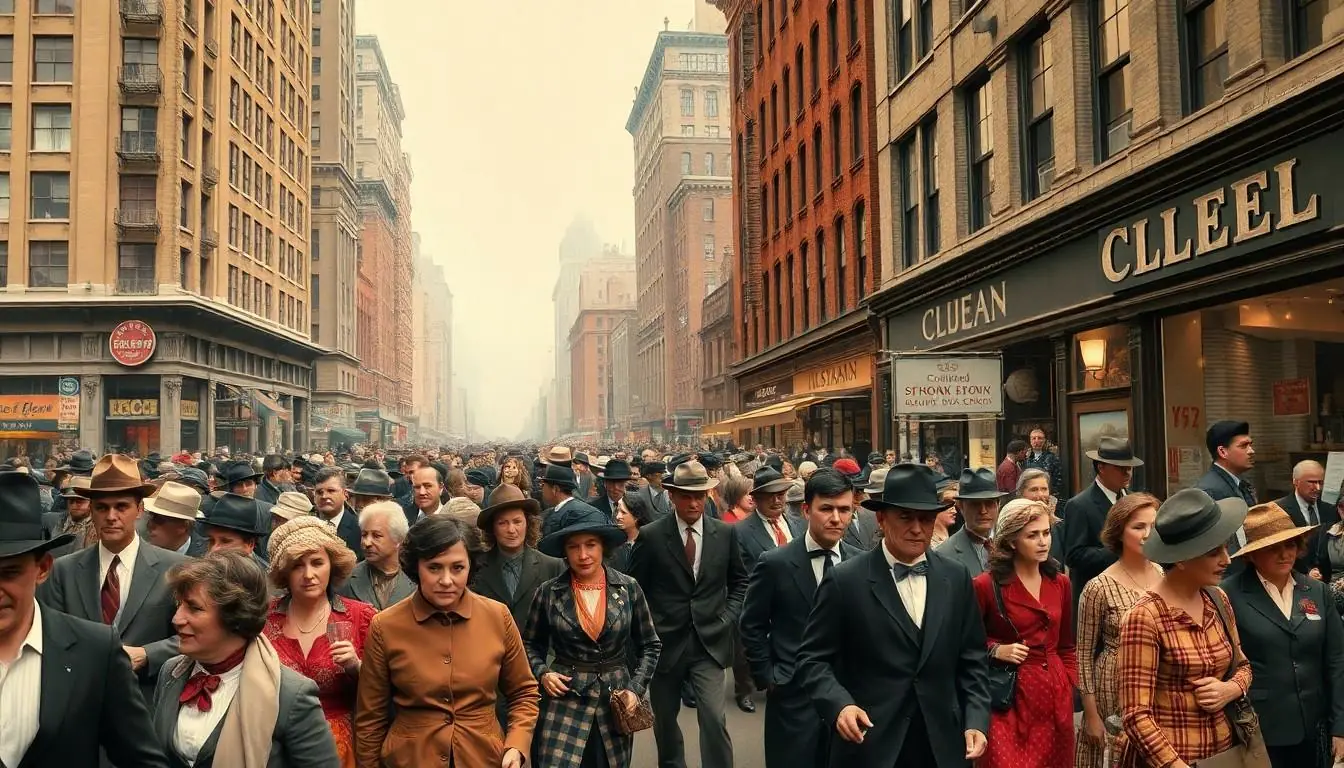In the bustling world of the Progressive Era, where fortunes were made faster than you could say “monopoly,” two powerful motivations ignited the fire for antitrust legislation. Picture it: a time when big businesses were flexing their muscles, leaving small competitors gasping for air. The public, fed up with corporate greed and the stranglehold of monopolies, rallied for change.
Table of Contents
ToggleHistorical Context of the Progressive Era
The Progressive Era emerged in the late 19th and early 20th centuries as a response to rapid industrialization. Monopolies flourished during this time, leading to the dominance of a few corporations over entire industries. Public sentiment shifted dramatically as individuals witnessed the negative effects of corporate expansion on small businesses and consumers.
Laborers faced harsh conditions, while consumers dealt with inflated prices. Discontent with vast corporate influence fueled movements advocating for reform. Activists sought to dismantle monopolistic practices that stifled innovation and competition. Ultimately, a growing awareness of the concentration of economic power prompted calls for government intervention.
Prominent figures like Theodore Roosevelt championed regulations to address corporate excesses. This leadership galvanized support for antitrust legislation. Addressing the imbalance between large corporations and everyday Americans became a central tenet of progressive reformers. Their efforts culminated in landmark laws like the Sherman Antitrust Act of 1890.
The Sherman Act marked the federal government’s first significant effort to regulate monopolistic behavior. This legislation sought to promote fair competition by prohibiting anti-competitive agreements. Other notable laws, such as the Clayton Antitrust Act of 1914, built upon this foundation and targeted specific practices deemed harmful to consumers and competitors.
Overall, the historical context of the Progressive Era highlights the urgent call for antitrust legislation. Economic imbalance, fueled by the unchecked power of monopolies, spurred the reform movements that defined this transformative period in American history.
Economic Motivations

Economic motivations played a crucial role in spurring antitrust legislation during the Progressive Era. Monopolies flourished, leading to significant disparities in market power.
The Rise of Monopolies
Corporations began consolidating, creating monopolies that dominated entire industries. Industries such as railroads and oil saw just a few companies exerting control over production and pricing. These monopolistic enterprises stifled competition, causing small businesses to struggle for survival. Progressive reformers became increasingly vocal about the dangers of such concentration. Grassroots movements emerged, rallying public support for regulatory measures against these powerful entities.
Impact on Consumers and Small Businesses
Consumers faced inflated prices and diminished choices due to monopolistic practices. Small businesses found it difficult to compete, often forced to adapt to the pricing strategies of larger corporations. Economic inequality surged, heightening public discontent. Harsh labor conditions also arose as monopolies sought to maximize profits, leaving workers vulnerable. This pervasive dissatisfaction galvanized reformers to advocate for legislation aimed at restoring fair competition and protecting consumer interests.
Political Motivations
Political motivations played a crucial role in the push for antitrust legislation during the Progressive Era. The rise of monopolies prompted significant public concern, leading to urgent reform efforts.
Influence of Reform Movements
Reform movements emerged as powerful forces advocating for fair competition. Organizations such as the Progressives united various groups, including labor unions and consumer advocates, to challenge corporate dominance. They highlighted the detrimental effects of monopolies on small businesses, workers, and everyday consumers. Progressive leaders utilized grassroots activism and political strategies to raise awareness about monopolistic practices. These movements pressed lawmakers to address the growing inequity caused by corporate consolidation.
Response to Public Outcry
Public outcry surged in response to rising monopolistic power. Citizens expressed frustration over inflated prices and diminishing choices in the marketplace. Labor struggles intensified, with workers facing oppressive conditions at the hands of monopolies. As discontent grew, political leaders recognized the need for intervention. Campaigns led by figures like Theodore Roosevelt resonated with the electorate, emphasizing the importance of regulation. The demand for antitrust laws grew louder, compelling lawmakers to act on behalf of constituents yearning for justice and economic fairness.
Key Legislation and Its Implications
The Progressive Era witnessed significant legislative efforts to curb monopolistic practices. Two landmark laws emerged, playing crucial roles in shaping fair competition.
The Sherman Antitrust Act
The Sherman Antitrust Act of 1890 represented the federal government’s initial response to corporate monopolies. This legislation prohibited any contract, combination, or conspiracy that restrained trade. Enforcement fell under the Attorney General’s jurisdiction, granting the government authority to take legal action against violators. Legal cases against major corporations, including Northern Securities Company, showcased the Act’s practical application. As a result, businesses faced increased scrutiny. This law laid the foundation for future antitrust regulations, marking a pivotal shift toward greater government intervention in the economy.
The Clayton Antitrust Act
The Clayton Antitrust Act of 1914 built upon the Sherman Act, clarifying the government’s stance against monopolistic behavior. It aimed to strengthen existing antitrust laws by prohibiting certain practices deemed harmful to competition, such as price discrimination and exclusive dealings. Provisions in the Act also provided legal protections for labor unions, distinguishing them from monopolies. Jurisdictions expanded to allow federal courts to issue injunctions against anti-competitive practices. This Act helped delineate fair business practices, reinforcing the commitment to maintaining a competitive marketplace. Key industries began to see closer regulation, fundamentally changing the landscape of American commerce.
The motivations behind antitrust legislation during the Progressive Era were rooted in the urgent need to address economic and political imbalances. As monopolies threatened fair competition and consumer welfare, public outcry became a powerful force driving reform. The combined efforts of reformers and political leaders led to significant legislative changes aimed at dismantling corporate dominance. This period marked a pivotal shift toward ensuring a competitive marketplace that prioritized the interests of small businesses and consumers alike. The legacy of these efforts continues to influence discussions on corporate regulation today.




